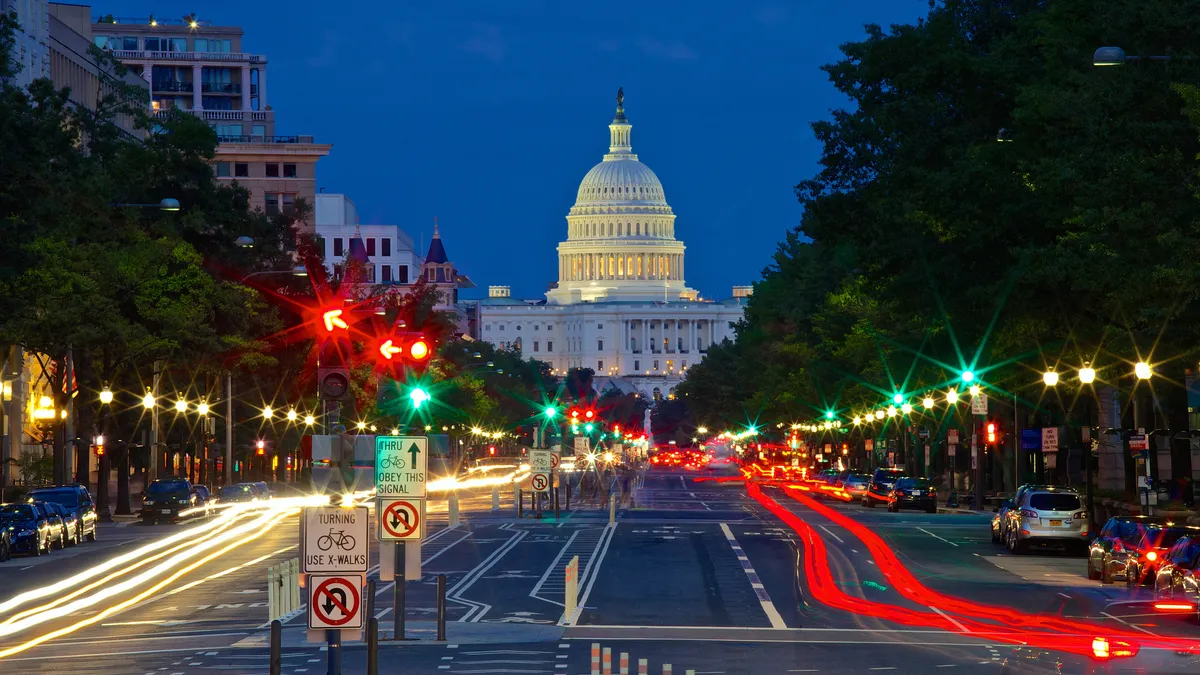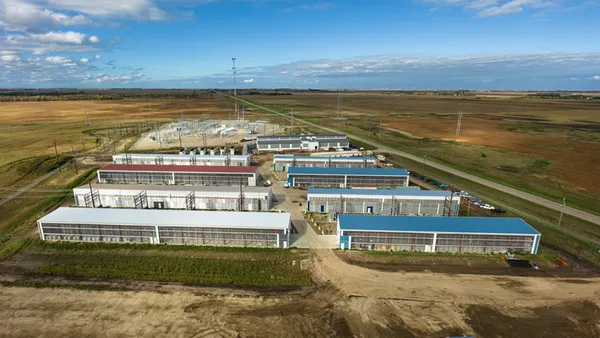Dive Brief:
- In a 3-0 vote on June 17, the D.C. Public Service Commission (PSC) rejected requests for a rehearing on the $6.8 billion Exelon-Pepco merger. The decision means the commission's order approving the deal now goes into effect.
- In March, the Commission approved the merger under the new conditions outlined after they rejected a settlement deal struck between the companies, the mayor's office and other merger stakeholders. After the decision, several parties filed requests for a rehearing, which stayed the order until regulators reviewed them.
- Opponents now have 60 days to file an appeal with the D.C. Court of Appeals. Two opponents to the merger, Public Citizen and DC Solar United Neighborhoods (DC SUN), said in a statement after the decision that they plan to take their appeal to court.
Dive Insight:
With today's decision, Exelon has cleared the last major hurdle in its acquisition of Pepco, the electric utility that serves the District of Columbia. The merger can now officially go through, though opponents' statements indicate it could face legal challenges down the road.
"We are deeply disappointed that the commission failed to reverse the unlawful Exelon-Pepco takeover today," said David J. Arkush, lead attorney for Public Citizen and DC SUN. "But the case doesn’t end here, and we will not stop fighting. Public Citizen and DC SUN fully intend to take the commission to court.
Regulators in Washington, D.C. approved the $6.8 billion acquisition in March, after a series of twists and turns in the merger proceeding before the PSC. The decision was the product of nearly two years of deliberations in the nation’s capital, which ultimately held final say over the deal’s approval.
At the time, the approval was met with surprise by city stakeholders and power sector analysts, many of whom had anticipated regulators would reject Exelon’s latest proposal due to a lack of consensus among parties to the settlement. In the hours after that vote, Utility Dive spoke with PSC Chairman Betty Ann Kane, the lone dissenting vote against the merger, and Commissioner Willie Phillips in separate interviews about the contentious process that led to merger approval and the commission’s role going forward.
In August 2015, the city’s Public Service Commission (PSC) rejected the companies’ initial merger offer, setting off a series of protracted negotiations with merger stakeholders that concluded with approval of a revised settlement agreement on March 23. (An in-depth timeline of the merger saga can be found here.)
Barring any unexpected late plot twists, the merger between Exelon and Pepco can now officially go through. In an exclusive interview earlier this week with Utility Dive, Exelon CEO Chris Crane explained the strategy behind the company's regulated businesses, including its merger with Pepco.
“Our strategy is to continue to invest and optimize the grid and the customer experience,” Crane told Utility Dive during an interview at EEI's annual convention. “Having the PHI merger close and starting that integration is a big step forward on that strategy.”
Crane also defended the contentious merger proceeding, saying many of the concerns of the merger critics were "factually incorrect."
“If we were to abuse and have affiliate transactions or affiliate advantages, we'd be breaking the law,” he said. “We don't break the law and we had to stress that over and over again.”
When reached for a statement by Utility Dive, Pepco spokesman Vincent Morris said:
"We’re gratified that the Public Service Commission of the District of Columbia has upheld the March 23 order approving the merger. Since our two companies merged, customers in the District, as well as Delaware, Maryland and New Jersey, have seen improved efficiency, savings from our combined resources and an enormous range of benefits. We continue to move forward as one company with a focus on providing safe, reliable, affordable and clean energy to all our customers.”














